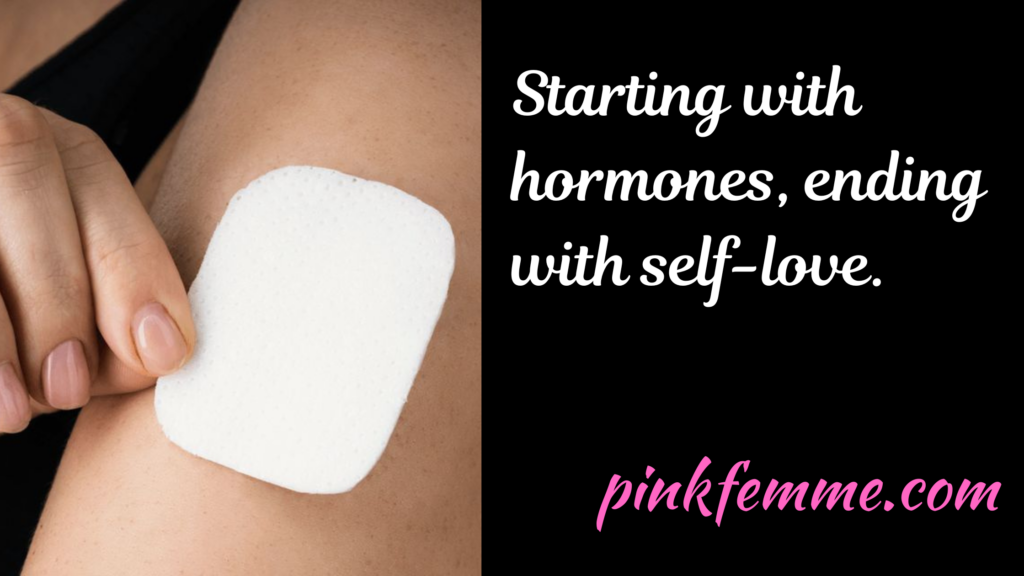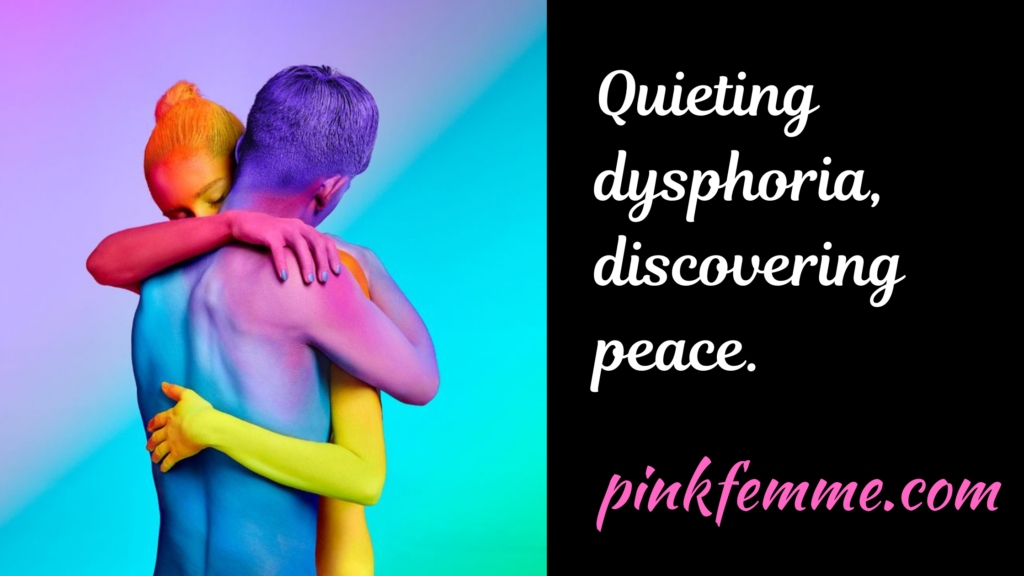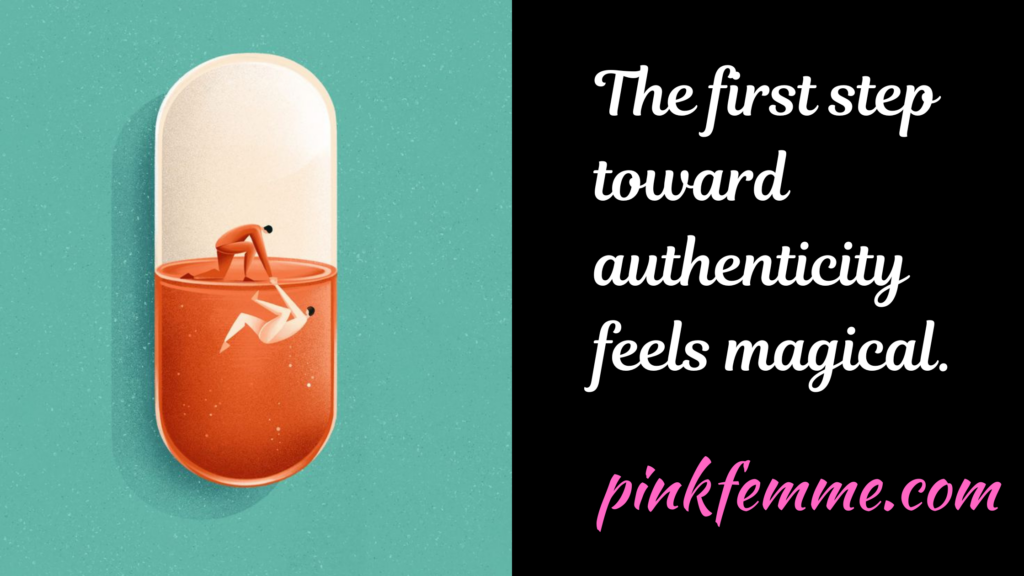
Hi there Darling! Today, I want to share something close to my heart—how starting hormone therapy early in your gender-affirming journey can make an incredible difference. If you’re considering transitioning or navigating the early stages of your gender affirmation, this article is for you. We’ll explore why starting hormone therapy before social transition can be a game-changer. I’ll also offer insights to help you feel more in control and confident as you move forward. So, grab a cup of tea, settle in, and let’s dive into the details.
Why Start Hormone Therapy Early?
When it comes to gender transition, many people suggest beginning with social transition—coming out, changing your pronouns, and presenting as your authentic self in public. While this works for some, it can feel overwhelming for others, especially when dysphoria is at its loudest. For many of us, the thought of stepping out as our true selves without addressing the internal turmoil first feels nearly impossible. That’s where early hormone therapy comes in as a potential first step.
By starting hormone therapy before socially transitioning, you may find the process becomes much more manageable. Let’s explore why this might be the perfect starting point for your journey.
The Benefits of Starting Hormone Therapy Before Social Transition
1. Reducing the Noise of Dysphoria
If you’re grappling with gender dysphoria, you know how loud and consuming it can be. It’s like a constant mental fog that clouds your thoughts and decisions. Starting hormone therapy early can help quiet this noise. While it may not erase dysphoria entirely, it can provide a level of biochemical alignment that feels like a breath of fresh air.

Hormone therapy begins to adjust your brain chemistry, aligning it more closely with your authentic self. This realignment often leads to mental clarity, making it easier to think through the next steps in your journey. Instead of dysphoria dictating your choices, you’ll be able to approach decisions from a place of empowerment and self-awareness.
2. Boosting Femme Confidence
One of the most beautiful gifts early hormone therapy offers is a boost in confidence. As the internal alignment starts to take effect, you may begin to feel more like yourself—inside and out. This newfound sense of self can make coming out and navigating social transition much less daunting.
If you face pushback or challenges from others, having already experienced the benefits of hormone therapy can help you stand your ground. You’ll know firsthand how much better you feel and how vital this step is to your mental health and well-being. Confidence isn’t just about how you look; it’s about how you feel. And early hormone therapy can help you feel more like you.
3. Feeling More in Control of Your Life
Transitioning often feels like a whirlwind of emotions, uncertainties, and challenges. It can leave you feeling powerless. But taking that first step—starting hormone therapy—can be a powerful way to reclaim control. It’s your decision, your journey, and your body. Choosing to begin hormone therapy reminds you that you’re an active participant in shaping your future.
When dysphoria has controlled your life for so long, finding even small ways to regain control can be transformative. Early hormone therapy gives you that chance. It helps you feel like you’re not just surviving, but actively moving toward a life that reflects your true self.
Why Feminizing Hormones Are Unique in This Approach
It’s important to note that feminizing hormones are particularly well-suited for this early-stage approach. During the first three months of hormone replacement therapy (HRT), there are minimal to no outward or permanent physical changes. This gives you a window of time to explore how the therapy affects your mind and body without committing to irreversible changes.

In contrast, masculinizing hormones often cause permanent changes within just a few weeks, which may not provide the same exploratory period. If feminizing hormones are something you’ve been considering, these first three months can serve as a safe trial phase. You can alleviate dysphoria, gain clarity, and decide on the best next steps for your transition.
Early Hormone Therapy as a Foundational Step
For many of us, feminizing hormones aren’t just a part of gender-affirming care; they’re essential. Living with dysphoria can feel as depleting as being severely dehydrated. Just as doctors prioritize rehydrating a dehydrated patient before treating other symptoms, balancing your hormones can provide the mental and emotional stability needed to move forward.

Even if you decide not to continue hormone therapy after the initial three months, this early phase can still be profoundly beneficial. It gives you time and clarity to explore your options without feeling rushed or overwhelmed. And if side effects arise, they are usually reversible within this window.
Final Thoughts
Starting hormone therapy early—before socially transitioning—might not be the traditional path, but it could be the right one for you. It offers a chance to reduce dysphoria, build confidence, and regain control over your life. These three months can be a period of self-discovery and growth, helping you align your mind and body in a way that feels affirming and empowering.
Remember, there’s no one-size-fits-all approach to transitioning. Your journey is unique, and you deserve to navigate it in a way that feels right for you. If early hormone therapy sounds like a step worth exploring, I encourage you to speak with a trusted healthcare provider or gender therapist. You are not alone, and there are so many resources and communities ready to support you.
You’ve got this, love.
If you are looking for more lifestyle-related posts here on Pink Femme, you can find them all here.
When it comes to my choices for makeup and beauty products, I only use L’Oréal Paris (Available on Amazon). I have really sensitive skin and never once have I had any negative reaction to any L’Oréal product.
Keep up to date with all my latest femme news with the fabulous Pink Femme Newsletter. Each Monday you’ll receive an email from me that will include a chapter from the novel that I am currently writing. I will also alert you to interesting information from articles that have not yet been published on Pink Femme. The Pink Femme Newsletter is the only place to see chapters from the novels before they are published. Sign up today: PINK FEMME NEWSLETTER.
References
- van der Loos, M. A. T. C., et al. (2022). Continuation of Gender-Affirming Hormones in Transgender People Starting Puberty Suppression in Adolescence: A Cohort Study in the Netherlands. The Lancet Child & Adolescent Health, 6(12), 869–875.
- American Psychological Association. (2015). Guidelines for Psychological Practice with Transgender and Gender Nonconforming People.
- American Psychological Association. (2024). APA adopts groundbreaking policy supporting transgender, gender diverse, and nonbinary individuals.
- WPATH. (2012). Standards of Care for the Health of Transsexual, Transgender, and Gender Nonconforming People (7th Version).
- University of California, San Francisco. (2016). Mental Health Considerations with Transgender and Gender Nonconforming Clients.
- University of California, San Francisco. (2016). Overview of Feminizing Hormone Therapy.
- American Psychiatric Association. (n.d.). Gender-Affirming Therapy.
- White Hughto, J. M., & Reisner, S. L. (2016). A Systematic Review of the Effects of Hormone Therapy on Psychological Functioning and Quality of Life in Transgender Individuals. Transgender Health, 1(1), 21–31.
- T’Sjoen, G., Arcelus, J., Gooren, L., Klink, D. T., & Tangpricha, V. (2019). Endocrinology of Transgender Medicine. Endocrine Reviews, 40(1), 97–117.
- Chen, D., Berona, J., Chan, Y. M., Ehrensaft, D., & Garofalo, R. (2023). Psychosocial Functioning in Transgender Youth after 2 Years of Hormones. The New England Journal of Medicine, 388(3), 240–250.
